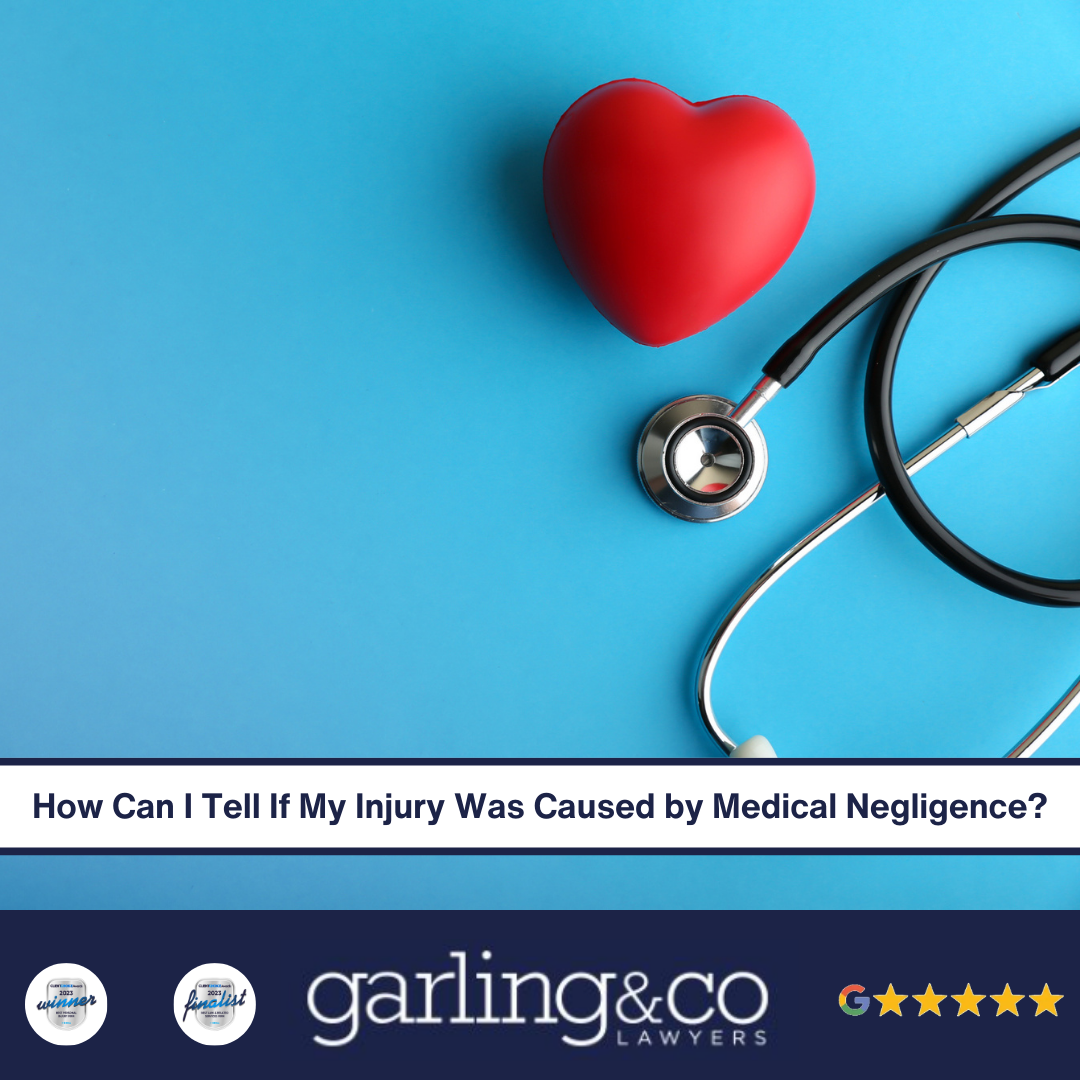How Can I Tell If My Injury Was Caused by Medical Negligence?

Quick Links
Introduction
Do you have a strong suspicion that something is not right?
You may have been receiving treatment for some time but have not noticed any improvement. You might even be feeling worse after treatment, or perhaps you have developed new symptoms, and you feel like your doctor is dismissing your concerns or simply not paying enough attention to your symptoms and complaints. Some of the advice given to you by your doctor is no longer making sense. We are here to assist you and answer patients’ most common questions. This article covers the critical aspects of Medical Negligence, also known as Medical Malpractice and will help you identify the usual indicators of medical negligence.
A Quick Introduction to Medical Negligence
It is essential to understand what medical negligence is. In simple terms, medical negligence occurs when a patient suffers injury, loss, or damage due to a healthcare professional failing to provide reasonable medical advice, care or treatment. Additionally, legally speaking, you must prove that the injury, loss, or damage was more likely than not avoidable but for failing to provide reasonable care and treatment.
The Three Elements of Medical Negligence
To prove that your injury was caused by medical negligence, you must establish the following:
1. Duty: The healthcare provider owed you a duty of care.
2. Breach of duty of care: The healthcare provider breached the duty of care by failing to provide you with care or treatment that is consistent with the accepted standards of care at that time (reasonable care).
3. Causation of damage: The failure to provide you with reasonable care or treatment more likely than not caused you to suffer a permanent or significant injury or loss for which you could be compensated.
How can you tell if your injury was caused by medical negligence?
Unexpected Complications
Whist experiencing complications or an unsatisfactory outcome are not necessarily proof negligence, and complications could occur even with excellent care, there are some matters that you must pay close attention to, including the following:
- There is no improvement in your condition or symptoms despite adhering to medical advice and recommended treatment.
- Your condition or symptoms continue to evolve and progress despite treatment.
- Your condition or symptoms worsen immediately, or shortly after, commencing treatment, with no reasonable explanation.
- You develop new symptoms.
- Your recovery takes much longer than anticipated, and your doctor cannot provide you with a reasonable explanation.
- You have come under the care of another doctor, and this new doctor expressed concerns about the treatment that you have received.
If you have experienced, or continue to experience, any of the above matters, it might be sensible to seek an explanation to your satisfaction or seek a second medical opinion.
A Healthcare Team that lacks transparency
If you feel that your healthcare providers are not being entirely transparent or forthcoming about your treatment and unsatisfactory outcome, or that they are dismissing or undermining your concerns or are refusing to refer you for a second medical opinion, it could be a sign that some of the care or treatment that you received was not reasonable or appropriate. Pay close attention to the following:
- Doctors or nurses avoiding your questions or providing vague answers.
- Difficulty accessing your medical records.
- Medical records that are incomplete
- A sudden change in your healthcare team without explanation
Inconsistent Diagnoses and Treatment Plans
Some patients have complex conditions requiring a multi-disciplinary team of specialists, and some patients seek a second opinion before undergoing specific treatments. If you receive conflicting information from your treating doctors, this might be due to a lack of consensus concerning your diagnosis or an appropriate treatment plan. Some examples of this scenario include the following:
- Conflicting diagnoses from different members of your healthcare team
- Rapid changes in your treatment plan without a clear rationale
- A lack of communication or coordination among your healthcare providers
FAQs:
How Can I Tell If My Injury Was Caused by Medical Negligence?
We have set out below answers to some frequently asked questions relating to medical negligence.
How can I tell if my injury was caused by medical negligence and not just an unfortunate outcome?
It can be challenging to differentiate between the two. Consulting with a specialist medical negligence solicitor can help you assess your situation and determine if negligence was involved.
What should I do if I suspect my injury was caused by medical negligence?
First, compile any medical documents you have in your position. Then, consult with a knowledgeable medical negligence lawyer to evaluate your case. Gathering the relevant medical records before consulting with a medical negligence solicitor is helpful and is a great time saver. If you cannot do this due to ill health or otherwise, your solicitor can request medical records on your behalf.
Can I sue for medical negligence?
Yes, you can sue for medical negligence if you have suffered an injury and your solicitors have procured the necessary expert evidence to support the alleged negligence and causation. In New South Wales, expert evidence is required to commence formal legal proceedings arising from medical negligence.
An experienced medical negligence solicitor can help you navigate the legal process and prepare your claim to be filed in court.
How long do I have to file a medical negligence claim?
The time limit, or statute of limitations, varies depending on your jurisdiction. Generally, it is three years from the date of the injury or the date you discovered the injury. The statute of limitations is complex and requires advice from a solicitor and specific consideration of your situation. You must consult with a medical negligence solicitor as soon as you suspect medical negligence.
The Next Steps: Investigating Medical Negligence
If you suspect that your injuries or symptoms are caused by medical negligence, below are the steps you should take to investigate your suspicions further:
- Gather your medical records:
Request copies of your medical records, including any relevant test results, imaging studies, and treatment notes.
- Consult with a specialist:
Speak with a medical professional who specialises in the same field as the healthcare provider in question. They can help you ascertain if the care and treatment that have been provided to you are consistent with reasonable care.
- Contact a medical negligence solicitor
If you suffering due to the negligence of a medical professional and need the assistance of an expert in medical negligence law, contact Garling and Co lawyers. Our lawyers are accredited specialists, specialising in medical negligence law and available to assist you with your claim. Contact us today by telephone at (02) 8329 9500, visit our website www.garlingandco.com.au or complete a free case assessment by clicking here.
Conclusion
You now know what to look for if you think you are a victim of medical negligence. By asking the right questions and taking proactive steps to investigate your suspicions, you can determine if your injury results from medical negligence and, if necessary, seek the justice you deserve. Contact Garling and Co. today and speak to our team of lawyers who are Accredited Specialists in Personal Injury Law and specialise in Medical Negligence. We are here to support you through your claim and support you in the fight for fair compensation.












